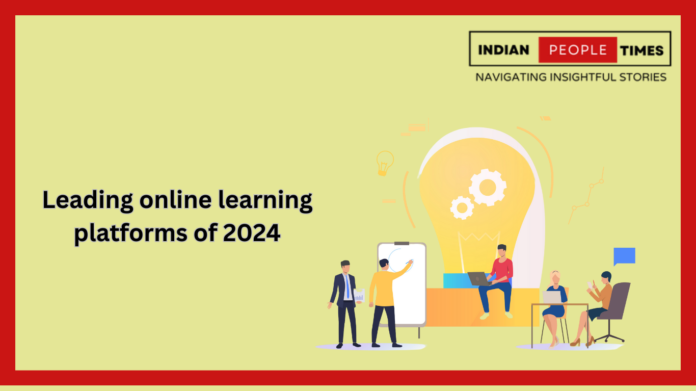In the digital age, where change propelled by digital transformation indicates the way forward, e-learning has emerged as an important driver pushing education accessibility to anyone regardless of the internet connection. However, the question here is real: what is an e-learning system anyway, and how does it differ from the traditional LMS? This article will define these differences preceding the rundown of the top 5 e-learning platforms in 2024.
Table of Contents
What is an E-Learning Platform?
A platform for e-learning is a space in digital form that provides coursework and content to worldwide users via the internet. Digital classrooms differ from physical ones because they lack time and location constraints. That means learners can learn at their own pace and time at their convenience. They make learning possible in a modal peculiarity, including various multimedia elements, including videos, quizzes, and interactive sessions, to enable learning engagement and improve retention.
What Sets an E-Learning Platform Apart from an LMS?
Nevertheless, e-learning platforms and Learning Management Systems (LMS) are an important part of web-based training; these systems, however, pursue a different aim. First and foremost, an LMS is used by school administrators who need management tools that help organize, create, store, and track all the educational materials they and their learners use. On the other hand, e-learning sites are designed upon a learner-centric model with a focus on content delivery and user experience. An LMS is a bone that sustains e-learning platform operation, whereas a front-end one is an interface with which an expression is interconnected.
Top 5 E-Learning Platforms of 2024
- Coursera: Coursera has been consolidating its position in the e-learning sector as the source provider that offers courses via partnerships with world-famous universities and organizations. A fully-fledged catalogue is part of it, from short courses to full-fledged degree programs, thus accommodating various levels of learners. Coursera’s plus is that it has a level of academic rigour and high-quality education.
- Udemy: The Udemy online platform provides its learners with a definite advantage of choosing from more than 150,000 courses, which is why this website is so well-known for its great choice of content. It may be targeting learning new skills, hobbies and activities, or for personal development, Udemy is the platform that fits all. The pay-per-course pricing model perfectly suits the existing users who need to upskill certain skills without committing to a monthly subscription model.
- edX: Like Coursera, edX provides classes in cooperation with some of the most chic universities. Nevertheless, it differs in its strength in the area of professional and micro degree programs for attaining the goals of their careers. edX provides a diverse free course catalogue. So now, people from every financial level can access quality education.
- Skillshare: By pursuing creative workers as its customers, Skillshare focuses on training in design, photography, and movies, among other fields. Its project-based method lets learners apply what they have learned through the completion of real-world projects, an approach that makes this platform more productive for the development of a person’s creative skills.
- LinkedIn Learning: LinkedIn Learning, which was the original name of Lynda.com, has shown extraordinary professional development skills, specifically in the areas of business, information technology and creativity. The integration of Coursera and LinkedIn’s professional network makes recommending personalized courses based on job roles and user interests easy, which ushers to career development.
The educational landscape of e-learning platforms in 2024 will be all-embracing as different platforms will provide particular learning requirements and preferences. If you want to dive into more complicated issues or are just looking for a certain skill or a creative outlet, then there is a platform for you to upload to. This trend has been unstoppable throughout the digital age, and those platforms will only become more important for lifelong learning and professional growth.
🔥240













